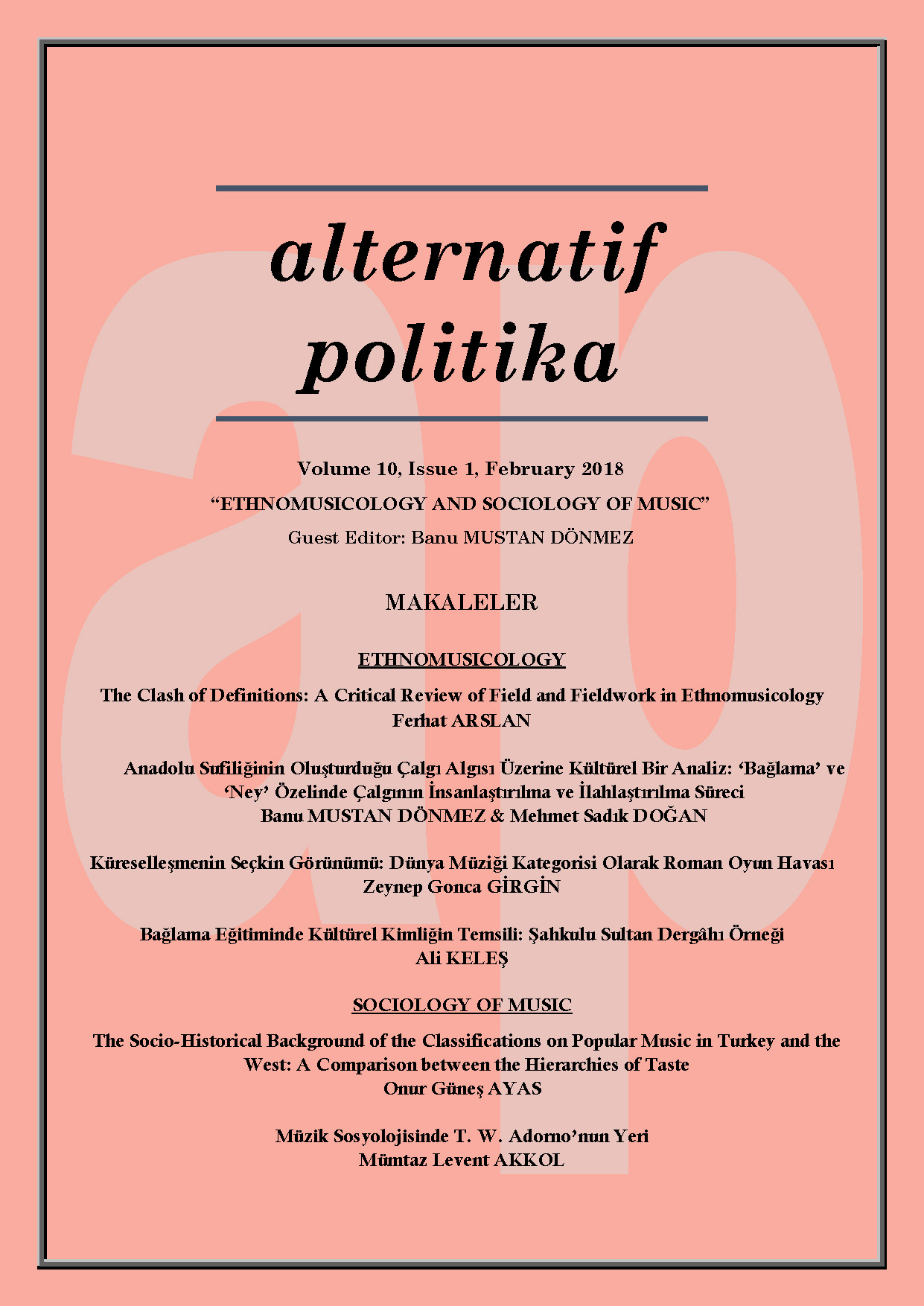BAĞLAMA EĞİTİMİNDE KÜLTÜREL KİMLİĞİN TEMSİLİ: ŞAHKULU SULTAN DERGÂHI ÖRNEĞİ
THE REPRESENTATION OF CULTURAL IDENTITY IN THE BAGLAMA TRAINING: THE CASE OF SAHKULU SULTAN DERGAH
Author(s): Ali KeleşSubject(s): Cultural history, Customs / Folklore, Music, Sociology of Culture, Sociology of Education
Published by: Rasim Özgür DÖNMEZ
Keywords: Baglama; Education; Cultural Identity; Alevi; Sahkulu Sultan Dergah;
Summary/Abstract: This study presents the findings of an ethnographic research carried out in the Sahkulu Sultan Dergah. The first aim of the research is to understand the perceptions of the actors who took part in the baglama training process on Alevi identity, music and baglama. The second purpose is to explain how these perceptions effect to the musical performance. Participant observation, semi-structured and unstructured interview techniques were used in obtaining the data. Like many modern Alevi institutions Sahkulu Sultan Dergah also arranges various educational activities. The purpose of semah and baglama courses is to educate individuals in a way that they can appropriately represent Alevi identity. Young zakirs who serve in the Dergah were educated in Sahkulu Sultan baglama course. Baglama instructor and trainees have different Alevism insights individually. These differences are reflected in the repertoire and in the baglama performances. In the end, however, all community members agree that the baglama is an integral part of Alevi identitiy.
Journal: Alternatif Politika
- Issue Year: 10/2018
- Issue No: 1
- Page Range: 73-90
- Page Count: 18
- Language: Turkish

